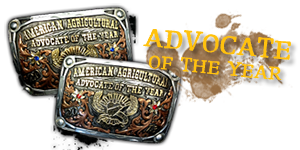A tenant is a person who leases a building, land or car that is owned by someone else. Therefore, a tenant farmer is a person who works or cultivate land that is owned by someone else commonly known as the landlord. He or she can pay rent with cash or a share of the crop produced. In tenant farming, the landlord usually contributes land, capital, and management while the tenant contributes their labor, capital and management. The returns of the production are shared by the two in different ways depending on the agreement between the tenant and the landowner.
Tenant farmers in different countries or system have different rights over the leased land. This is to protect both the tenant and the landowners from exploitation. The rights include tenancy at will whereby either the landlord or the tenant is allowed to end the contract at any time provided that they have a good reason for the action. In other instances, both parties make an agreement and sign a contract that covers a specified period of time.
In tenant farming, there are four basic types of hire, these are:
- • cash lease
- • crop sharing lease
- • livestock sharing lease
- • crop share lease
Cash lease
As the name suggests, in this type of lease the tenant uses cash to pay for the land. Both parties agree on a certain amount to be paid for a given period of time. The best thing about this type of lease is that the tenant has the right to manage or control the farm as they wish. In case the season is good, the tenant might pay less rent that in the other forms of lease.
Crop sharing
This is the most common type of tenant farming. The landlord and the tenant shares the returns for the crop produced. The amount to be shared vary and depends on the agreement by both parties but in most cases, it is usually 50 / 50. One disadvantage of this type of lease is that the tenant can pay more.
livestock sharing lease
This type of lease provide joint ownership of the basic herd to the tenant and the land owner. They share all the expenses and returns. For that reason, both parties work hard to make profits and also to ensure the success of the business.
Crop sharing cash lease
In this case, the tenant uses both cash and a part of the crop produced to pay for the land. It is advantageous to both parties.
Since the landowner is paid for the use of land by the tenant, he/ she is always determined to keep the farm land and other necessary properties in good condition. This is a great plus on the side of the tenant. Abuse only occurs in instances where the land owner has excess power and the tenants are poor.
Tenant farming is a great agricultural practice. This is because it allow the peasants and other people who have a small peace of land or who are landless to practice agriculture. A peasant farmer is also protected by the law in some countries. It is advantageous to the tenant if the lease is fare, if the land is in good condition for farming and the building and instruments are in a good state.
